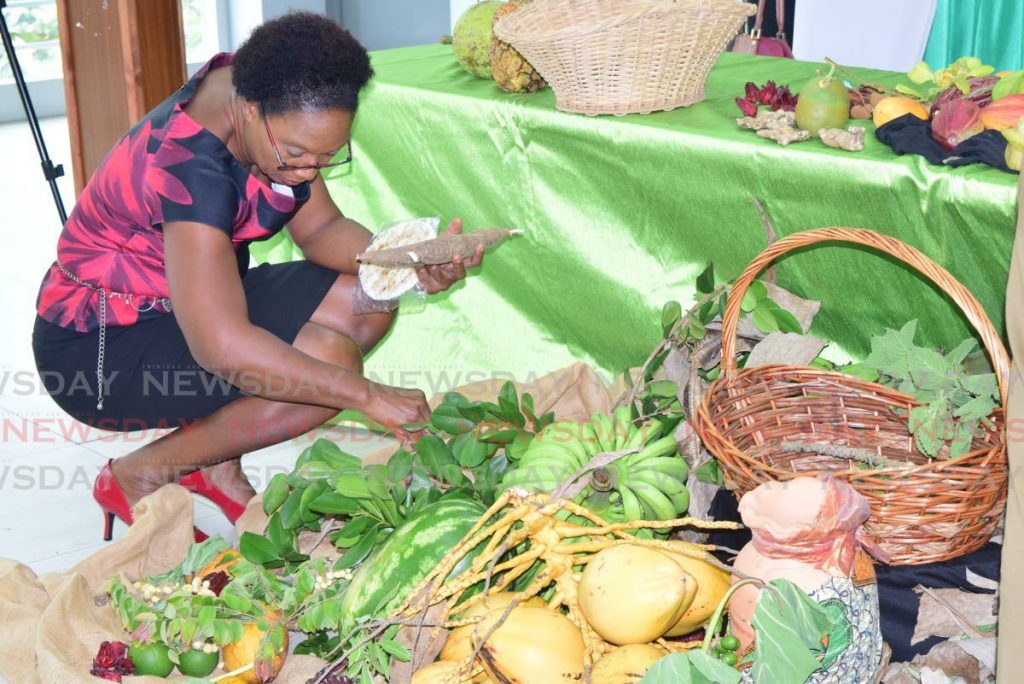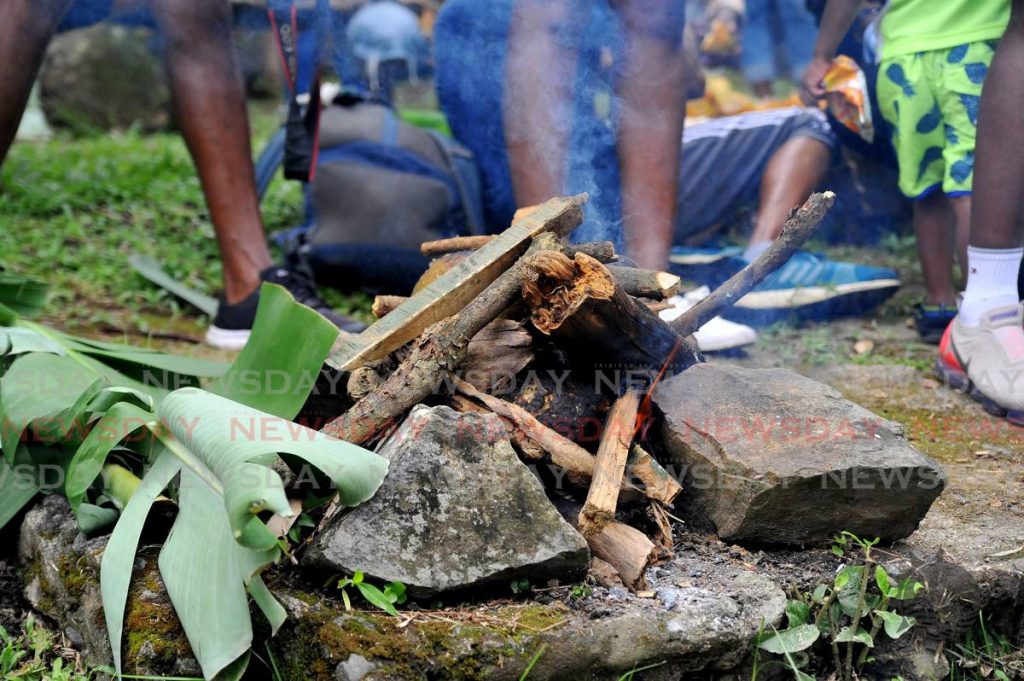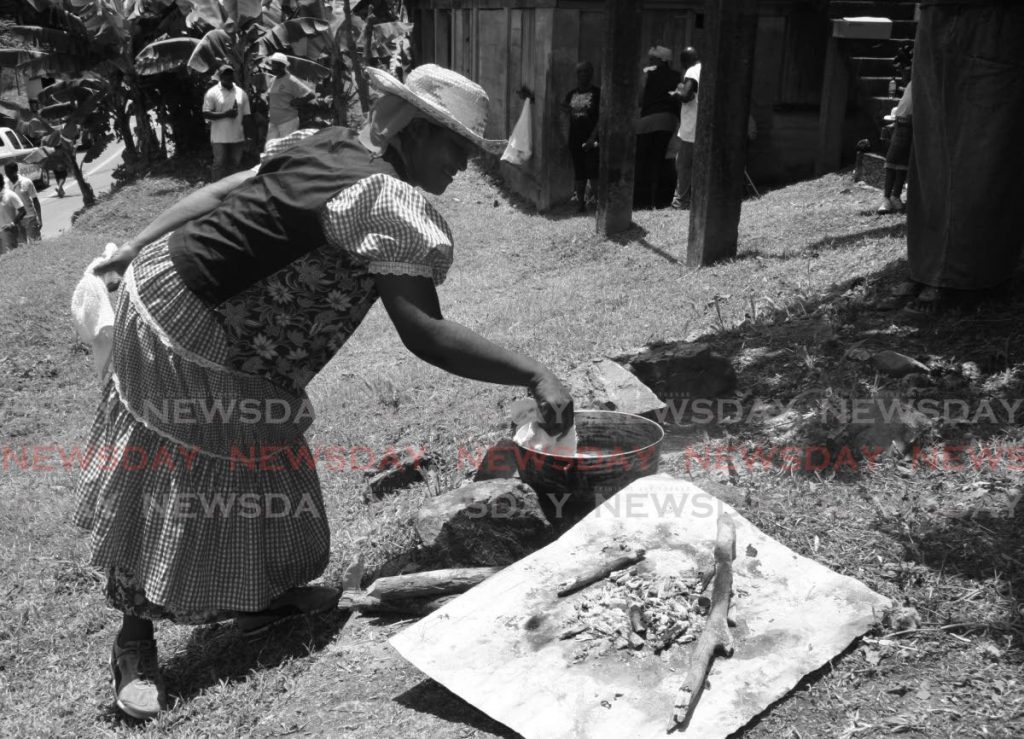Harvest tabanca

Easter Monday is usually a hectic time at Mc Nichol Nicholson’s house in Mt Pleasant, Tobago.
He wakes up at around 3 am and heads to his kitchen to prepare a host of dishes for family, friends and passers-by. Nicholson said by noon, there would be a stream of visitors, eager to partake of the food and drinks he has meticulously laid out.
He said after the hearty meal, some of his guests may either choose to spend the rest of the day relaxing at his home or walk to the nearby recreation ground for the village’s annual sports & family day, a staple on the island’s social calendar.
It’s all part of Tobago’s proud harvest tradition, one which Nicholson’s family has been a part of since 1988.
The annual tradition, which involves the sharing of food and drink, enables each of the island’s villages to host their own harvest at specific periods of the year as a means of giving back.
Some Tobagonians, owing to financial constraints, have their harvests biennially while others have been known to take out loans every year to put on their show of culinary skills.
Bethel, Mt Pleasant and Buccoo harvests are usually held on Easter Sunday, Monday and Tuesday, respectively.

But this year, covid19 forced these communities to cancel their celebrations in keeping with the restrictions about congregating in groups of more than five people. Mt Pleasant’s sports & family day and Buccoo’s popular goat & crab races were also cancelled.
Nicholson, former manager of Mt Pleasant’s Carib Dixieland Steel Orchestra, said he took the cancellation of his village’s harvest in stride.
“I think the Government has done a good job in guiding the country, so I took it in stride,” he told Sunday Newsday.
“So, we can’t do anything. We have to live first before we have harvest, even though my wife and daughter said I have a harvest tabanca.”

Nicholson said prepping for his harvest begins about a month before the actual date.
“You get all of your meats and put them in the deep freeze. I even make my own ice. Days before Easter Monday, the meats are seasoned up and put back in the fridge for Monday morning.”
He said this year he would have prepared pork, chicken, rabbit, fish, goat, crab, callalloo, coo coo, dasheen bush and rice among other the dishes.
“It is a lot of work but my family thinks of it as a labour of love. The harvest is really a thanksgiving that involves the church. So, we have been keeping up the tradition. It is just something we enjoy doing.”
Tradition has dissolved, says historian
Historian and cultural activist Rawle Titus told Sunday Newsday Tobago’s harvest tradition has historically been linked to the church.

However, he believes the tradition is fast losing its essence.
“Is like everybody having harvest. You hearing the remarks like, ‘Who keeping harvest?’”
He added: “I remember at a time it had reached the point where people would go and take a loan to keep harvest. The thing went from the religious thanksgiving aspect to what it is now.
“When people here this village having harvest, that village having harvest, it is like an outing. I going by meh friend in that village because that is the day of their harvest.”
Titus said people would also talk about animals they have killed “but you are not hearing about what they gave back to the church.
“You are not hearing about the thanksgiving aspect. And I cannot say with any conviction that harvest has the same significance as it did back 50 years ago. I really don’t think so.”
Titus, a former Senate vice-president, recalled he was invited several years ago to a harvest in a place where there was no church.
“There was no attachment to any church. It was like ‘we having harvest because everybody else having harvest.’”
He added: “I have not heard of an Adventist and Pentecostal harvest but all of the other churches, including the Baptists, have harvests. The thing just dissolved to the point where everybody got involved.”
According to Titus, villages were built up around churches during the British era. Moravian churches were built in Moriah, Bethel while other villages were influenced by the Anglicans and Methodists.
As such, these churches held harvests in keeping with their respective doctrines.
Villages with strong Methodist underpinnings include L’Anse Fourmi, Castara, Mason Hall, Les Coteaux, Scarborough, Mt St George, Roxborough and Charlotteville.
Speyside, Belle Garden, Pembroke, Lambeau, Whim and Mt Pleasant are among the villages that are steeped in Anglicanism.
Titus said these churches believed harvests were the means through which people could give back to the church some of the produce they had planted.
“Farmers used to look forward to bringing their best produce and it was laid around the altar as a means of giving thanks to God.
“You used to see cane long enough to reach the roof of the church. It used to be a great thing and after the harvest, people used to have sales. So, the church was in control of that.”
Titus said churches were also decorated on the Saturday before their harvests.
“It was a way to suggest that this was a special event. I don’t know that that happens now.”
He said the bazaars held by the Roman Catholics, in later years, carried the same harvest tradition.
“It was like a thanksgiving and had religious significance.”
Titus recalled some people used to put plates on tables in their homes so that visitors would make donations to the church.
“I don’t know if that still continues.”
Titus said harvests, which were once a feature of the Tobago Heritage Festival, also involved friendly competition among church choirs.
“That aspect has diminished. It is not significant enough.”
Titus said the island’s harvest tradition must be documented “because I really think we are losing it.
“We are losing a lot of the cultural and religious aspects to a lot of the things we do now.”

Comments
"Harvest tabanca"